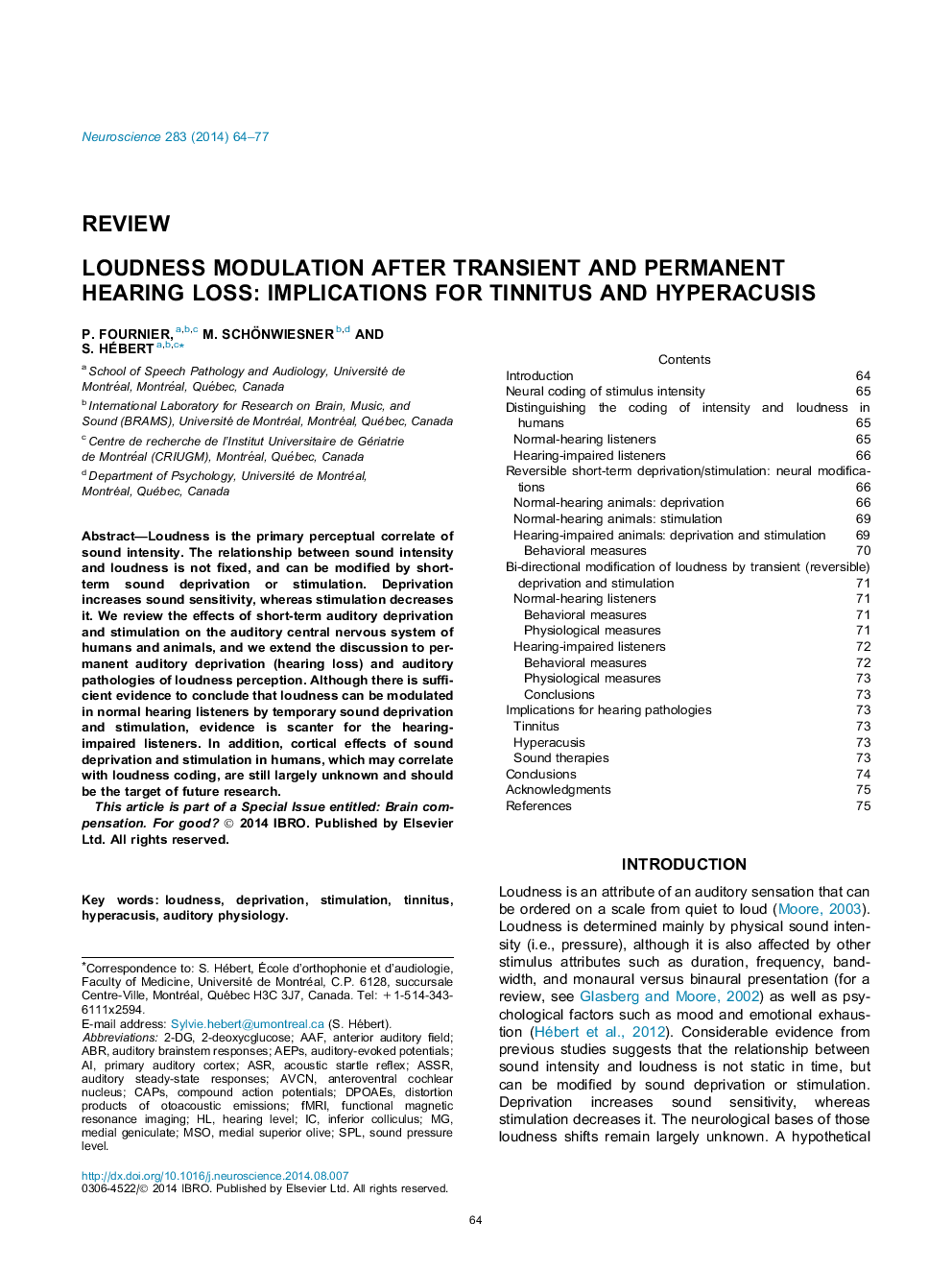| Article ID | Journal | Published Year | Pages | File Type |
|---|---|---|---|---|
| 6272809 | Neuroscience | 2014 | 14 Pages |
Abstract
Loudness is the primary perceptual correlate of sound intensity. The relationship between sound intensity and loudness is not fixed, and can be modified by short-term sound deprivation or stimulation. Deprivation increases sound sensitivity, whereas stimulation decreases it. We review the effects of short-term auditory deprivation and stimulation on the auditory central nervous system of humans and animals, and we extend the discussion to permanent auditory deprivation (hearing loss) and auditory pathologies of loudness perception. Although there is sufficient evidence to conclude that loudness can be modulated in normal hearing listeners by temporary sound deprivation and stimulation, evidence is scanter for the hearing-impaired listeners. In addition, cortical effects of sound deprivation and stimulation in humans, which may correlate with loudness coding, are still largely unknown and should be the target of future research.
Keywords
HyperacusisASSRAEPsCAPSAVCNAAFABRSPLMSOASR2-DGDPOAEsStimulationfunctional magnetic resonance imagingfMRIMedial geniculateacoustic startle reflexanterior auditory fieldmedial superior olivehearing levelSound pressure levelLoudnessauditory physiologyprimary auditory cortexDeprivationanteroventral cochlear nucleusTinnitusauditory brainstem responsesAuditory steady-state responsesauditory-evoked potentialsCompound action potentialsInferior colliculus
Related Topics
Life Sciences
Neuroscience
Neuroscience (General)
Authors
P. Fournier, M. Schönwiesner, S. Hébert,
